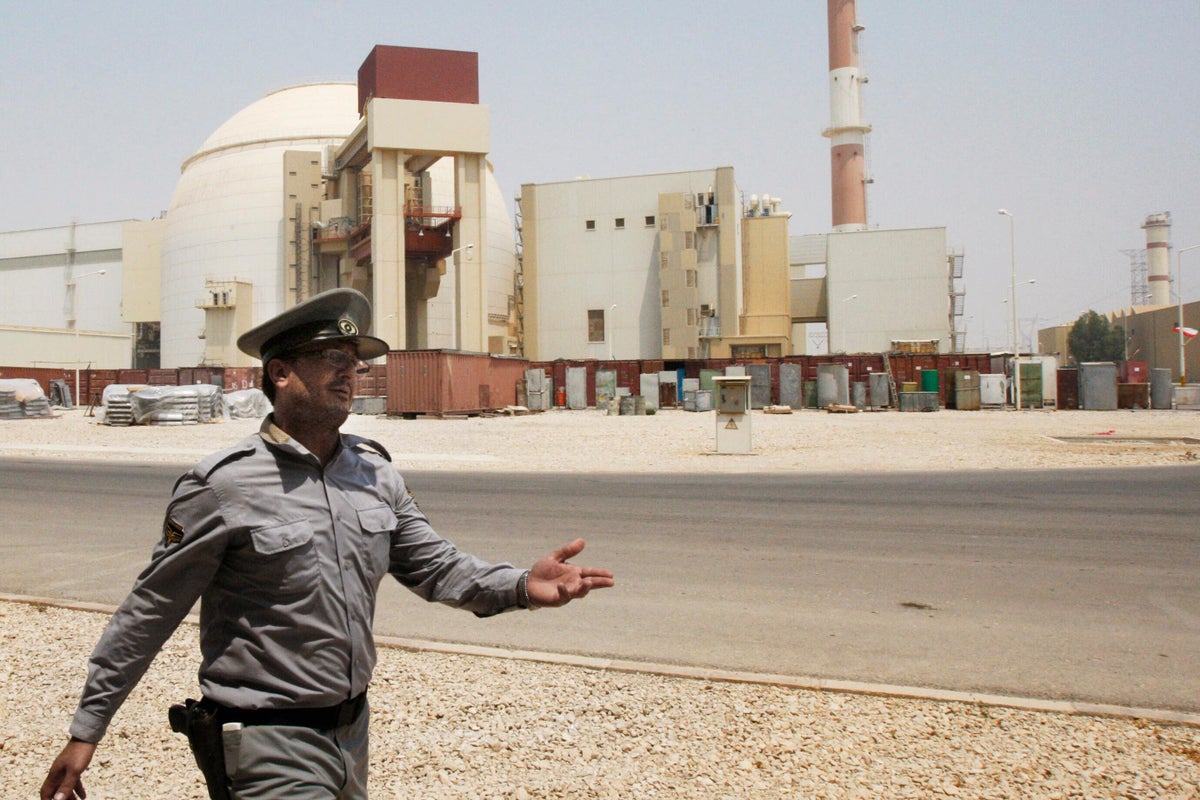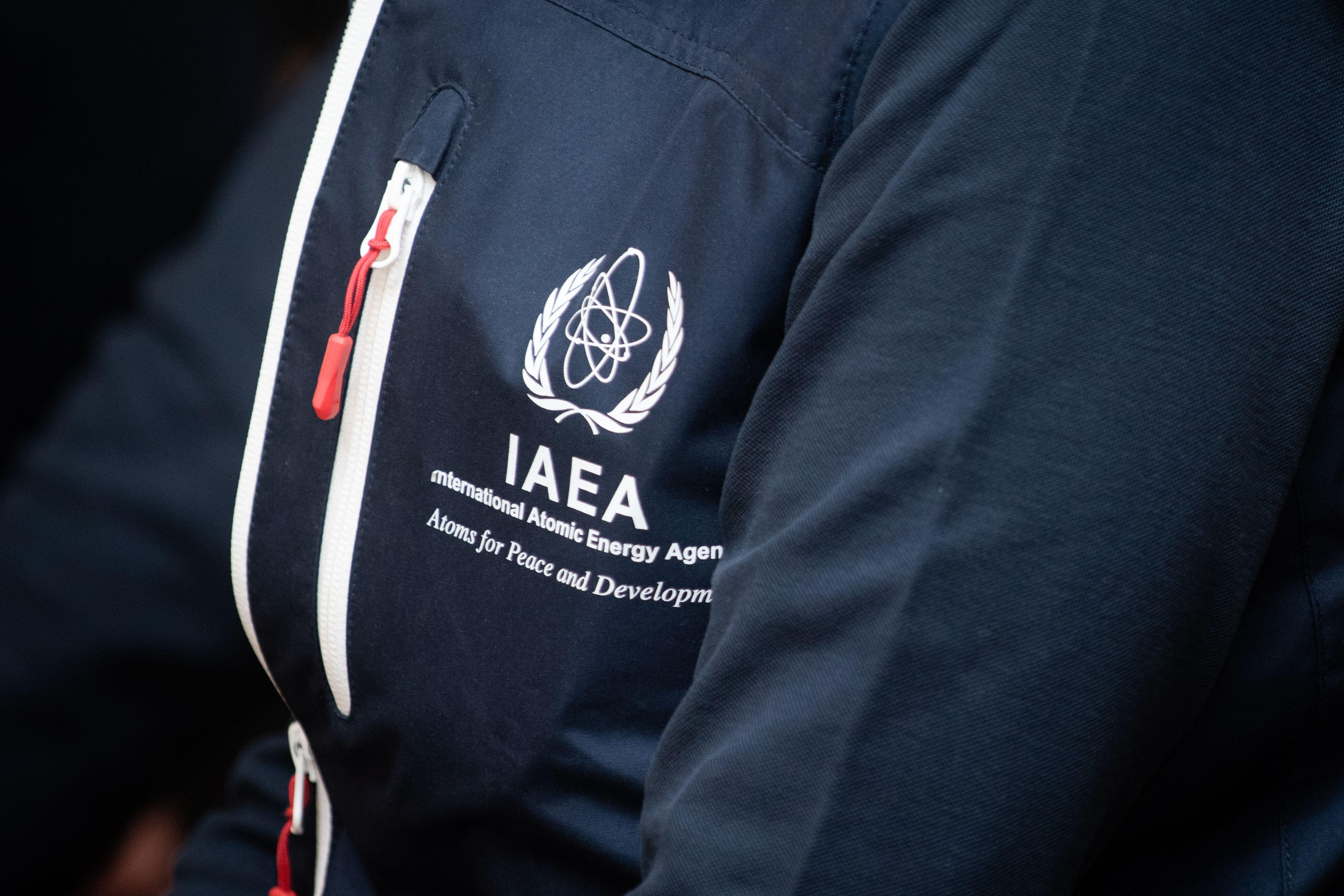
The UK, alongside France and Germany, has announced its plan to revive UN-backed sanctions on Iran over fears it is developing nuclear weapons.
The three European powers, known collectively as the E3, intend to re-introduce sweeping sanctions after efforts to restart diplomatic talks over Tehran’s nuclear programme stalled.
Iran has insisted its nuclear programme is for peaceful purposes, but it has enriched uranium to levels exceeding that required for civil nuclear power, in breach of a deal agreed with western nations in 2015.
The E3 plans to reimpose a series of sanctions, made by UN resolution, which were suspended when the 2015 agreement, known as the Joint Comprehensive Plan of Action (JCPOA), was made.
The three countries this week wrote to US secretary of state Marco Rubio outlining their intent, and on Thursday afternoon notified the UN.

A 30-day period now begins before the sanctions are implemented, in which the UK, France and Germany hope talks can take place and Iran will agree to step back its nuclear ambitions.
Foreign Secretary David Lammy said they had been left with “no choice” but to revive sanctions, as Iran had “made no substantive effort to meet the conditions of our extension offer”.
He said: “Alongside my French and German counterparts, I have today written to the UN Security Council announcing that we have triggered the snapback mechanism which will end sanctions relief against Iran.
“Iran’s nuclear programme remains a threat to global peace and security. Over the past six years, Iran has broken almost all limits in the JCPOA and its stockpile of enriched uranium is 45-times over the JCPOA limit.
“Alongside our European allies, the UK has negotiated in good faith since 2019, when Iran began to disregard the nuclear deal.
“We supported a viable deal in 2022, which Iran rejected, and recently offered an extension to sanctions relief, subject to Iran meeting set conditions.
“However, despite repeated warnings, Iran has made no substantive effort to meet the conditions of our extension offer and has consistently failed to provide credible assurances on the nature of its nuclear programme.
“Whilst we have been left with no choice but to take this action, the ball remains in Iran’s court and I would welcome their return to the table with a serious offer.”
In a joint statement with the foreign ministers of France and Germany, Mr Lammy said Iran’s non-compliance with the JCPOA to limit its nuclear programme was “clear and deliberate”.
The statement said Iran has exceeded limits on enriched uranium imposed by the deal, and restricted the ability of the International Atomic Energy Agency (IAEA) to monitor its nuclear programme.
It read: “Iran has no civilian justification for its high enriched uranium stockpile, now over nine Significant Quantities, which is also unaccounted for by the IAEA.
“Its nuclear programme therefore remains a clear threat to international peace and security.”
Therefore, a “snapback” mechanism has been triggered, meaning sanctions and other restrictive measures will be reintroduced in 30 days unless Iran commits to the conditions of an extension offer or the United Nations Security Council adopts a resolution to continue the lifting of sanctions.
This decision from the E3 is likely to trigger a harsh reaction from Tehran, where relations with the West are already strained following Israel’s 12-day war with the country earlier this year.
During that war, the Israelis targeted Iran’s largest nuclear sites, after claiming Tehran was close to developing nuclear weapons.
Nuclear inspectors from the IAEA have returned to Iran following the conflict, but are facing restrictions on their movements.
A UK Government official said the E3 was taking steps to revive sanctions for three reasons.
These include that:
– Iran is in “significant non-compliance” with the terms of the 2015 nuclear deal.
– Iran is the “only non-nuclear weapon state producing highly-enriched uranium”, with a stockpile over 400kg, the definition of the approximate amount of material needed to make nuclear weapons.
– There has not been “sufficient response on the Iranian side to reach an agreement” about scaling back its nuclear programme, despite E3 nations “making every effort to resolve this diplomatically, bending over backwards to do so”.
During the 30-day process ahead of the sanctions coming into force, the UK, Germany and France now plan to kickstart negotiations with Iran.
The possibility of a six-month extension – offering Iran reprieve from the sanctions – “still remains” the Government official added.
Shadow foreign secretary Dame Priti Patel said: “The appalling behaviour of the Iranian regime has gone on for too long, and they have brought the initiation of the snapback process upon themselves.
“Tehran must never obtain a nuclear weapon and Conservatives remain clear that the recent US strikes were necessary.”
The Board of Deputies of British Jews welcomed the Government’s announcement.
Senior vice president Adrian Cohen said: “This move is fully justified considering the regime’s undimmed nuclear ambitions and ongoing commitment to Israel’s destruction.
“Following this decision, we have reiterated directly to Government the need to confront the full spectrum of the Iranian regime’s threats to Britain’s Jewish community as well as to international security, including by proscribing the Islamic Revolutionary Guard Corps in full.”
Government must ‘go further and faster’ to prevent repeat of Afghan data breach
Couple detained in Iran during global motorcycle tour ‘suddenly whisked’ to courtroom
Israeli airstrikes hit Yemeni capital, Houthis say
UK summons Russian ambassador over ‘senseless’ attack on Kyiv
Online forum 4Chan sues Ofcom in the US over ‘attempt to censor’
Allowing ban on migrant hotel could encourage more protests, Home Office claims







